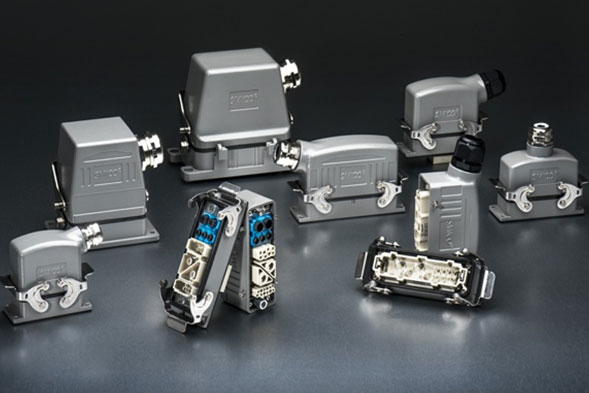
In the complex world of electrical engineering, selecting the appropriate connector is crucial for ensuring optimal performance and reliability of electrical systems. Major connectors serve as the backbone of electrical connections in various industrial applications, transmitting power and signals efficiently and safely. Among the broad spectrum of connectors available, the Heavy Duty Connector stands out for its robustness and versatility, making it a preferred choice for demanding environments.
Understanding Major Connectors
Major connectors are essential components that establish secure electrical connections between circuits or devices. They are designed to handle significant electrical loads and withstand harsh environmental conditions. The selection of a major connector involves understanding its function, the requirements of the application, and the various types available in the market.
Types of Major Connectors
There are several types of major connectors, each suited to specific applications:
Understanding the distinctions between these connectors is vital for making an informed choice that aligns with the operational demands.
Factors to Consider When Choosing a Major Connector
Selecting the right major connector requires careful consideration of several key factors:
Electrical Requirements
The electrical specifications of the connector must match the application's needs. This includes voltage rating, current carrying capacity, and the type of electrical signals transmitted. For high-power applications, connectors must handle elevated currents without overheating.
Mechanical Requirements
Mechanical considerations involve the connector's physical durability, mating cycles, and resistance to vibration and shock. Connectors like the Heavy Duty Connector are engineered to provide robust mechanical performance in challenging conditions.
Environmental Considerations
Environmental factors include exposure to temperature extremes, moisture, dust, chemicals, and other contaminants. Connectors used outdoors or in industrial settings must have appropriate ingress protection (IP) ratings to ensure reliable operation.
Compliance and Standards
Compliance with industry standards and regulations is essential. This ensures the connector meets safety, performance, and interoperability criteria. Standards from organizations like the International Electrotechnical Commission (IEC) provide guidelines for connector specifications.
The Advantages of Heavy Duty Connectors
Heavy Duty Connectors are specifically designed to meet the rigorous demands of industrial applications. They offer several advantages:
High Current and Voltage Handling
These connectors can handle high currents and voltages, making them suitable for heavy machinery and equipment. Their construction ensures stable electrical connections even under load variations.
Robust Mechanical Design
Built to withstand physical stress, Heavy Duty Connectors have sturdy housings that protect against mechanical damage. They are resistant to vibration, shock, and mechanical wear, which is vital in industrial environments.
Environmental Protection
With high IP ratings, these connectors offer excellent protection against dust, water, and other environmental factors. This ensures reliable performance in harsh conditions, including outdoor and marine applications.
Modularity and Flexibility
Heavy Duty Connectors often feature modular designs, allowing customization to specific application needs. Modules can handle different types of signals, power levels, and facilitate quick assembly and maintenance.
Selecting the Right Heavy Duty Connector
Choosing the appropriate Heavy Duty Connector involves a systematic approach:
Assessing Application Requirements
Begin by thoroughly understanding the application's electrical and mechanical requirements. Determine the necessary current, voltage, number of contacts, and environmental conditions the connector must withstand.
Evaluating Connector Specifications
Examine the specifications of available connectors. Consider factors such as contact material, plating, insulation resistance, and dielectric strength. The connector's design should facilitate easy installation and maintenance.
Compatibility and Interoperability
Ensure the connector is compatible with existing systems and adheres to relevant industry standards. Compatibility reduces integration issues and enhances system reliability.
Future-Proofing the Design
Consider future expansion and scalability. Selecting connectors with modular capabilities can accommodate system upgrades without significant redesigns.
Applications of Heavy Duty Connectors
Heavy Duty Connectors are utilized across various industries due to their resilience and adaptability:
Industrial Automation
In automation systems, these connectors facilitate reliable connections between control units, motors, sensors, and actuators. Their robustness ensures minimal downtime in production environments.
Transportation
Heavy Duty Connectors are essential in railways, automotive, and aerospace applications. They withstand vibrations and environmental extremes, ensuring passenger safety and system functionality.
Energy and Power Generation
In power plants and renewable energy installations, these connectors handle high power transmissions. Their reliability is critical for continuous energy supply.
Oil and Gas Industry
Operating in harsh offshore and onshore environments, connectors must resist corrosion and explosive atmospheres. Heavy Duty Connectors meet stringent safety and performance standards in this sector.
Case Study: Implementing Heavy Duty Connectors in Industrial Machinery
A manufacturing company sought to upgrade its machinery to improve efficiency and reduce maintenance time. By integrating Heavy Duty Connectors, they achieved faster assembly and disassembly of equipment. The connectors' modular design allowed for easy customization and scalability, leading to significant cost savings and productivity enhancements.
Maintenance and Best Practices
Proper maintenance of connectors ensures longevity and reliability:
Regular Inspection: Check for signs of wear, corrosion, or damage.
Cleaning: Remove contaminants that may affect performance.
Tightening: Ensure all connections are secure to prevent electrical faults.
Environmental Protection: Use appropriate seals and covers in adverse conditions.
Conclusion
Selecting the right major connector is a critical decision that affects the performance and reliability of electrical systems. By understanding the application requirements and considering factors such as electrical specifications, mechanical robustness, environmental conditions, and compliance standards, you can make an informed choice. The Heavy Duty Connector emerges as a versatile and reliable option for numerous industrial applications, offering durability, flexibility, and secure connections. Investing time in selecting the appropriate connector ensures long-term operational efficiency and safety in your electrical systems.













